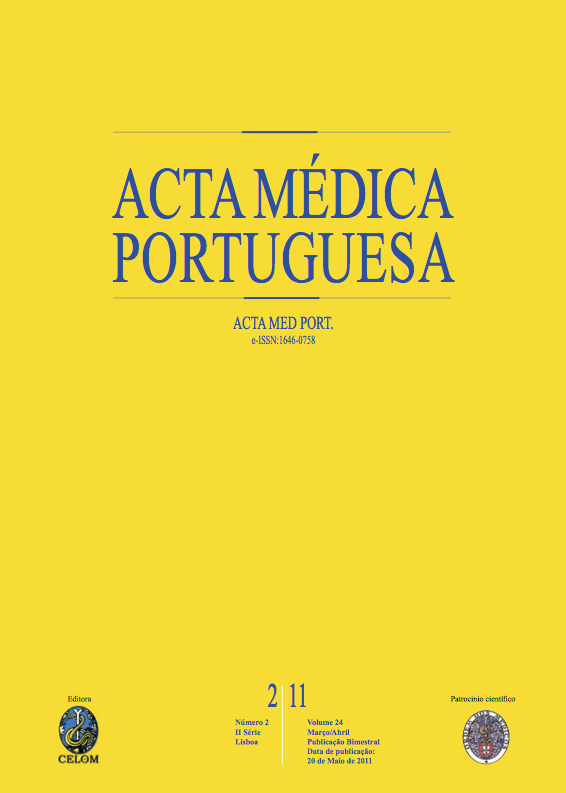Realidades e expectativas dos alunos da licenciatura de medicina da Guiné-Bissau no ano lectivo 2007.
DOI:
https://doi.org/10.20344/amp.1623Resumo
In Guinea Bissau, the majority of university level professionals are still being trained abroad and most of them do not return to their country. This was a major incentive for creating Guinea Bissau's Medical School. An observational, cross-sectional, analytic study was conducted on the second trimester of 2007 to characterize the socio-demographic, familial and educational profile of medical students, their satisfaction levels, difficulties and expectations concerning the medicine course. A questionnaire was used and a response rate of 63% achieved (81 students). Data was analyzed using SPSS v.17 for descriptive statistics. Students are very committed to their education. They tend to decide to take the medicine course early in their lives and are influenced by their relatives. They choose to be medical doctors because they like it but also for altruistic reasons and the desire to save lives. Although many face financial and material difficulties, they tend to have success in their academic live. They live with their parents, do not have children and some have side jobs to provide for extra income to help with their education. They expect their education to make them good doctors in any part of the world and want to work simultaneously in the public (to serve their country and pay their debt to the State) and in the private sector (to enhance their income). The large majority wants to work in a hospital, in Bissau, and to be a pediatrician or obstetrician. They have unreasonably high expectations concerning their future income as medical doctors.Downloads
Downloads
Como Citar
Edição
Secção
Licença
Todos os artigos publicados na AMP são de acesso aberto e cumprem os requisitos das agências de financiamento ou instituições académicas. Relativamente à utilização por terceiros a AMP rege-se pelos termos da licença Creative Commons ‘Atribuição – Uso Não-Comercial – (CC-BY-NC)’.
É da responsabilidade do autor obter permissão para reproduzir figuras, tabelas, etc., de outras publicações. Após a aceitação de um artigo, os autores serão convidados a preencher uma “Declaração de Responsabilidade Autoral e Partilha de Direitos de Autor “(http://www.actamedicaportuguesa.com/info/AMP-NormasPublicacao.pdf) e a “Declaração de Potenciais Conflitos de Interesse” (http://www.icmje.org/conflicts-of-interest) do ICMJE. Será enviado um e-mail ao autor correspondente, confirmando a receção do manuscrito.
Após a publicação, os autores ficam autorizados a disponibilizar os seus artigos em repositórios das suas instituições de origem, desde que mencionem sempre onde foram publicados e de acordo com a licença Creative Commons









